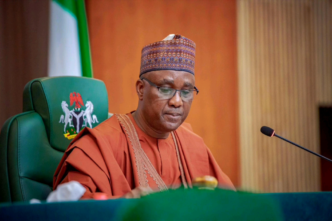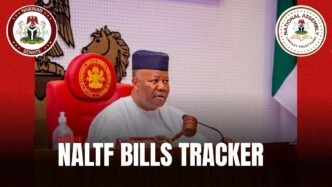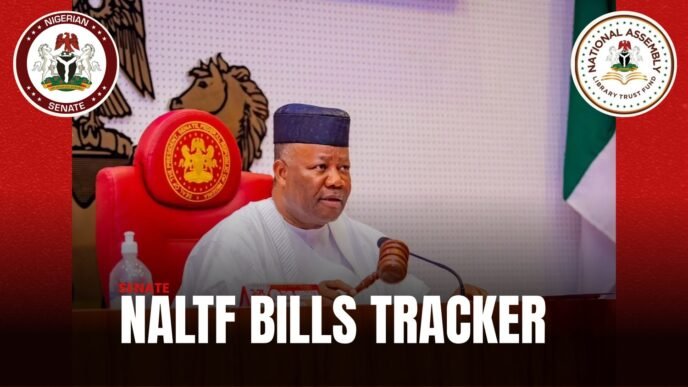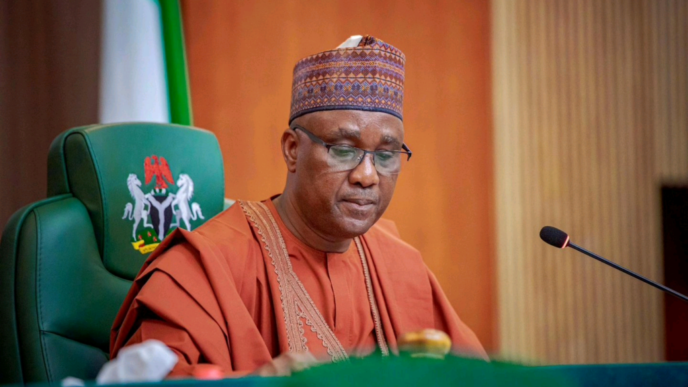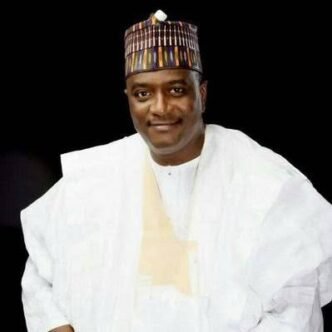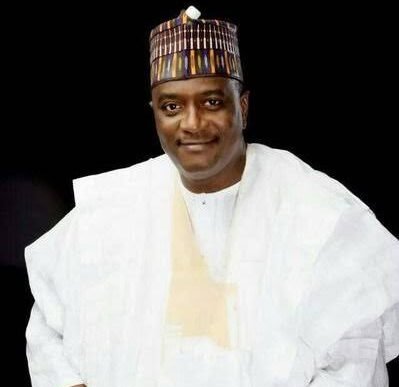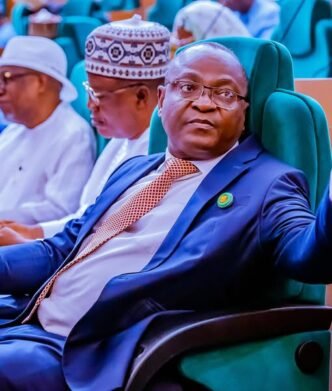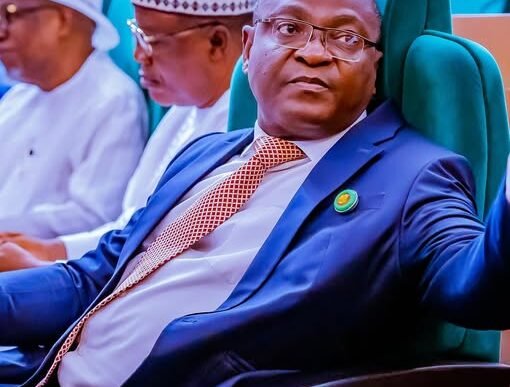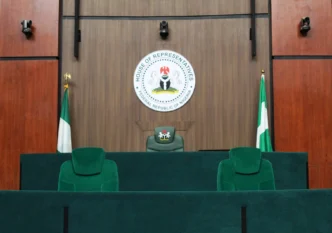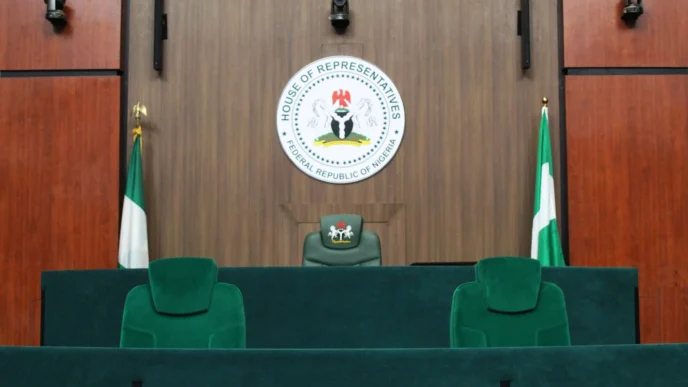In March 2025, the Nigerian House of Representatives advanced a significant electoral reform by passing for second reading a bill aimed at establishing an independent authority to oversee the registration, regulation, and funding of political parties. This legislative move seeks to transfer these responsibilities from the Independent National Electoral Commission (INEC) to a newly created body, thereby enhancing the transparency and efficiency of Nigeria’s political landscape.

Sponsorship and Legislative Intent
The bill, titled “A Bill for an Act to Enact the Political Parties (Registration and Regulation) Bill 2024,” was co-sponsored by Speaker Tajudeen Abbas and Hon. Marcus Onobun, representing Esan Central/Esan West/Igueben Federal Constituency in Edo State. The primary objective of the bill is to establish an independent authority—the Office of the Registrar of Political Parties—to handle the registration, regulation, and funding oversight of political parties. This initiative aims to unburden INEC, allowing it to focus solely on its core mandate of conducting elections.
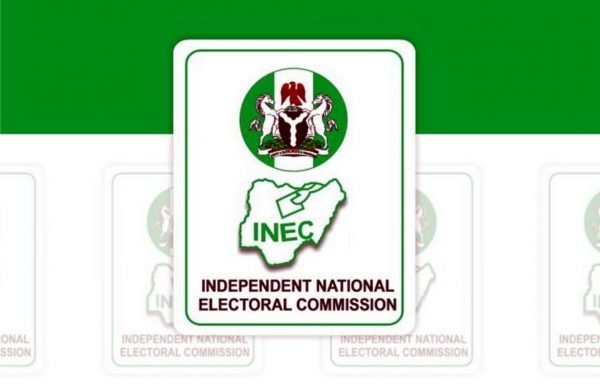
Rationale for the Reform
Hon. Onobun articulated that the current dual role of INEC—both regulating political parties and conducting elections—has led to concerns about impartiality and efficiency. By creating a separate body to oversee political parties, the bill intends to ensure compliance with constitutional and statutory requirements, thereby promoting a more transparent and accountable electoral process.
Key Provisions of the Bill
- Establishment of the Office of the Registrar of Political Parties: This office will be responsible for the registration of political parties, monitoring their activities, and ensuring they adhere to legal and financial regulations.
- Creation of the Political Parties Disputes Tribunal: The tribunal will address intra-party and inter-party disputes, as well as conflicts involving independent candidates, ensuring timely and impartial resolution of electoral conflicts.
- Regulation of Party Funding: The bill proposes stringent measures to monitor and regulate political party financing, aiming to prevent the influence of illicit funds and promote transparency in party operations.
- Penalties for Violations: To enforce compliance, the bill stipulates penalties for political parties and their members who contravene established regulations, thereby fostering accountability within the political system.
- Amendment of the Electoral Act 2022: The bill seeks to amend Sections 75 to 81 of the Electoral Act 2022, removing the registration and regulation of political parties from INEC’s functions and transferring these responsibilities to the new authority.
Implications for Nigeria’s Electoral System
The proposed establishment of an independent body to oversee political parties is expected to address several challenges in Nigeria’s electoral system:
- Enhanced Transparency: By separating the regulatory functions from the electoral body, the bill aims to reduce potential conflicts of interest, leading to a more transparent political environment.
- Improved Accountability: The creation of a dedicated authority for party regulation is anticipated to enforce stricter adherence to legal and financial standards, holding political parties accountable for their actions.
- Focused Electoral Oversight: With INEC concentrating solely on conducting elections, it is expected to operate more efficiently, ensuring the credibility and integrity of the electoral process.

Stakeholder Reactions
The bill has garnered support from various stakeholders, including political parties and civil society organizations, who view it as a step towards strengthening Nigeria’s democratic institutions. The Inter-Party Advisory Council (IPAC) has endorsed the move, emphasizing the need for an independent body to regulate political parties and ensure equitable access to the political process.
However, some critics have raised concerns about the potential challenges in establishing and funding a new regulatory body. They caution that while unbundling INEC may be desirable, it is crucial to ensure that the new authority operates effectively and does not become an additional layer of bureaucracy.
Conclusion
The passage of the bill to establish an independent authority for the registration, regulation, and funding of political parties marks a significant step in Nigeria’s electoral reform journey. If enacted into law, it has the potential to enhance the transparency, accountability, and efficiency of the political system, thereby strengthening the foundations of Nigeria’s democracy. As the bill progresses through the legislative process, it will be essential for all stakeholders to engage constructively to address any concerns and ensure the successful implementation of the proposed reforms.
Vanguard News: “Reps pass political parties regulation bill for second reading” – March 6, 2025.
Punch Newspapers: “Reps advocate independent agency to register, fund political parties” – March 6, 2025.
The Guardian Nigeria: “Reps move to strip INEC of power to regulate, register political parties” – March 6, 2025.
The Cable: “Reps move to strip INEC of power to register, regulate political parties” – March 6, 2025.
Daily Trust: “Bill to strip INEC of power to register, regulate party’s scales second reading” – March 6, 2025.
Leadership Newspapers: “Reps Move to Strip INEC Of Party Registration, Regulation Powers” – March 6, 2025.
Channels Television: “Bill to Relieve INEC Of Party Registration Scales Second Reading” – March 6, 2025.
Opinion Nigeria: “Bill that limits INEC’s control over political parties passed by Reps” – March 6, 2025.
